-
Corporate Information
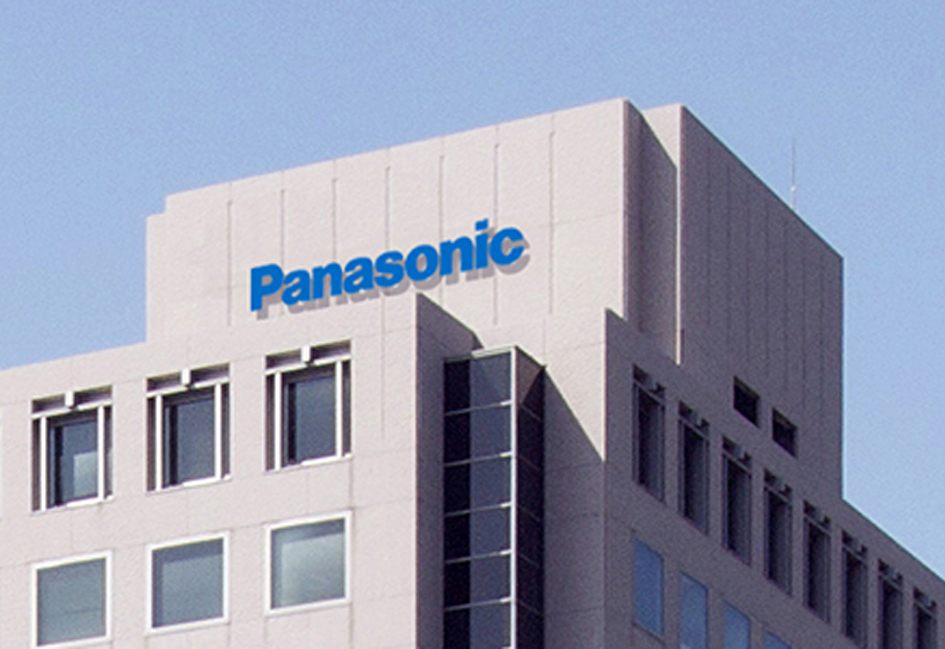
× CLOSE
-
Our Business
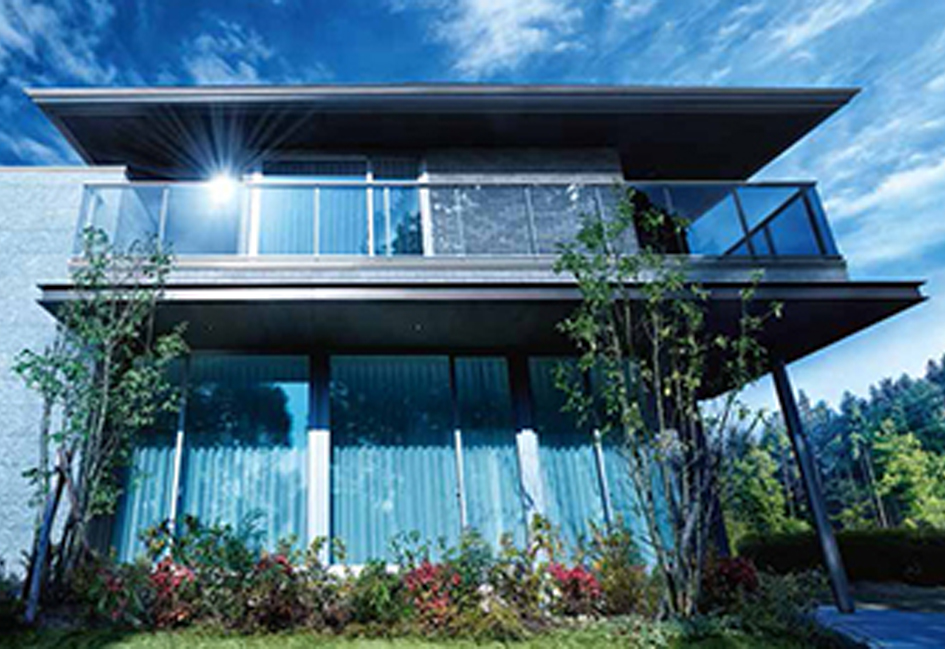
× CLOSE
-
Technologies
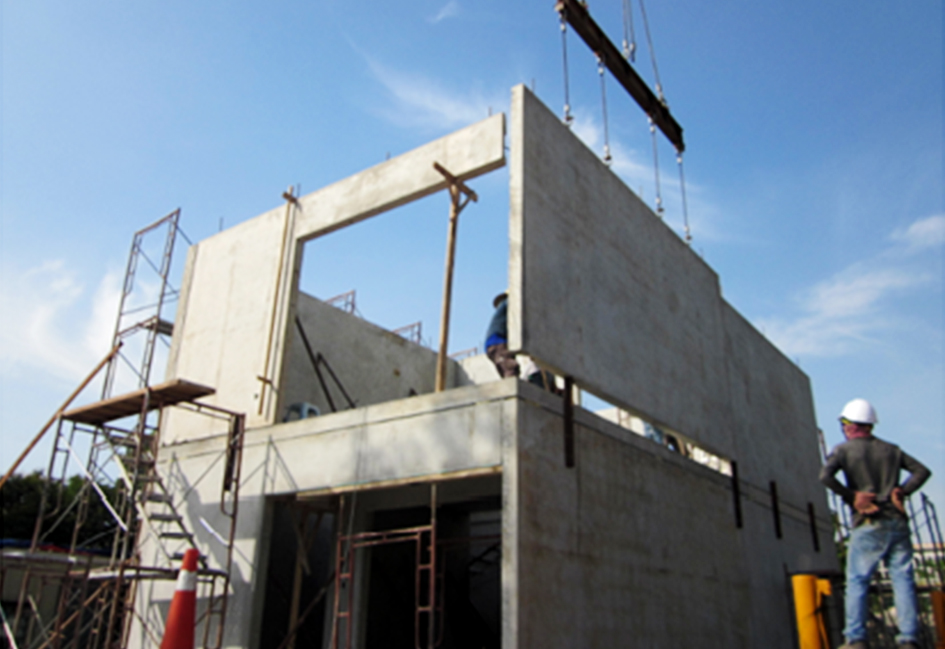
× CLOSE


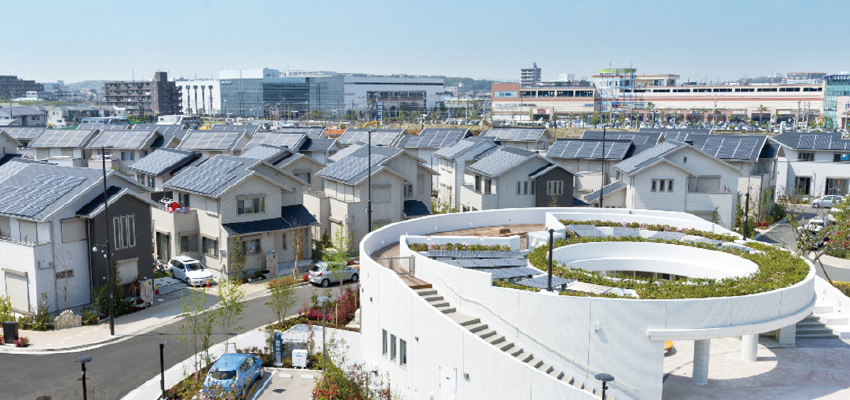


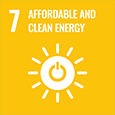
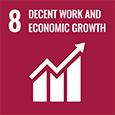
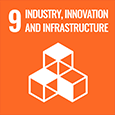
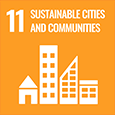

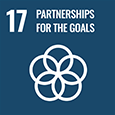
With an eye to the future 100 years from now, Fujisawa Sustainable Smart Town (Fujisawa SST)* has been developed in Fujisawa, Kanagawa Prefecture. This sustainable town is a public-private joint project by Fujisawa City and partner companies working on progressive activities. As a sustainable project, Fujisawa SST will continue to contribute to achieving the SDGs.
*Fujisawa SST website (Japanese): https://fujisawasst.com/EN/
This three-tiered design model shows a lifestyle-oriented town without giving too much importance to either zoning or infrastructure design. The Fujisawa Model enables the creation of a sustainable smart town with nature’s bounty, where an eco-friendly and smart life can be sustained.
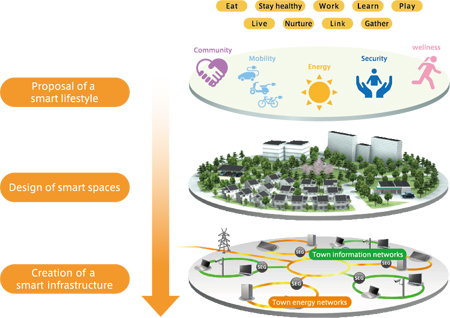
SAVASA is a smart town being developed by PT. PanaHome Deltamas Indonesia, a joint venture we established in 2017 with Sinar Mas Land (a local developer) and the Sojitz Group.
SAVASA employs the WPC construction method for its residential structure, QAFL technology for higher air quality in rooms, and passive design for the use of natural energy. Development of this sustainable town is under way, and the transfer of ownership of some completed houses started in July of last year. SAVASA is scheduled to be completed in 2030 as a town comprising 2,500 houses with about 10,000 residents.
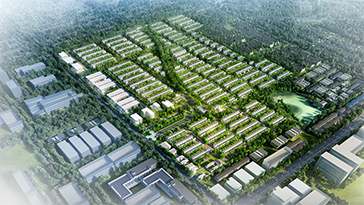

In addition to providing sturdy and stable housing, we ensure that urban development comes with the development of infrastructure, including transportation and public facilities, to allow all residents, young and old, men and women, to continue living there safely with peace of mind. Also, we make comprehensive contribution to society, including energy-saving activities, with due consideration to environmental conservation in the neighborhood.

A single company cannot develop a whole new big town. We not only build houses but also collaborate with various partners, including transportation and public institutions, to create a better environment for residents and the neighborhood.

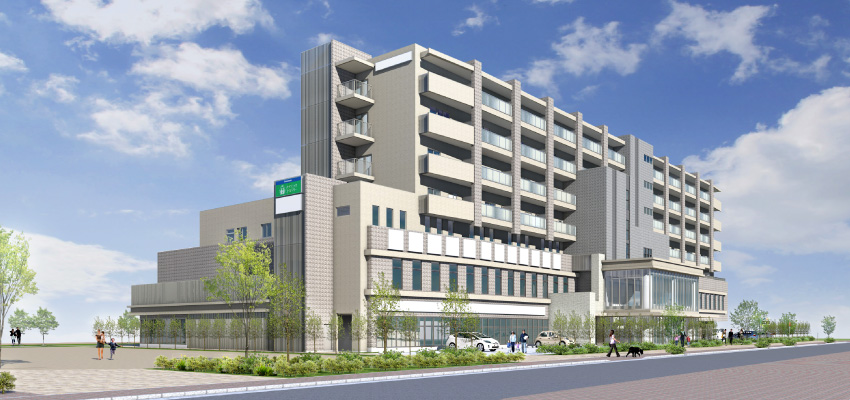



We have developed and operated a serviced housing complex for the elderly in Block 2 of the Northern Osaka Health and Biomedical Innovation Town (NohBIT, nicknamed “KENTO”),* which straddles the cities of Suita and Settsu, Osaka Prefecture, in collaboration with local governments. We will continue to work on the development of towns well equipped with healthcare and medical care services in anticipation of the future.
* Taking advantage of the relocation of the National Cerebral and Cardiovascular Center (NCVC) to the former site of Suita Switchyard in July 2019, Suita and Settsu have worked on the development of the town, characterized by its healthcare and medical care. The two cities have also worked toward the development of an international-standard medical cluster centered on the NCVC with cooperation from Osaka Prefecture and other organs concerned. In July 2015, the town was given its name and the nickname. (Source: website of NohBIT (KENTO))
● Name: Northern Osaka Health and Biomedical Innovation Town (NohBIT)
● Nickname: KENTO, a combination of the initial letters of the necessary factors for preventing cardiovascular disease—Knowledge (correct knowledge and accumulation of intellect), Exercise (moderate workout), Nutrition (proper nutrition and adequate diet)—and the first two letters of “Town.”

We have worked on a pioneering model project characterized by the following three functions: wellness maintenance focusing on lifestyle disease prevention and preventive elderly care; an integrated community care system; and added value created by cooperation with relevant organs in and outside NohBIT (KENTO).

We work on the achievement of this goal through the project of the housing complex for the elderly in collaboration with local governments.

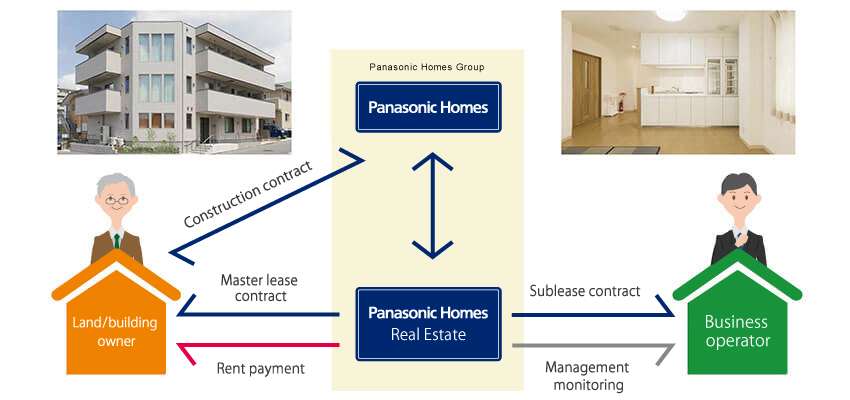





Despite an increasing number of people with disabilities, Japan has been facing a shortage of group homes (communal living assistance) available to them. To resolve this serious issue, Panasonic Homes actively proposes to landowners that they make their land available for such housing so that disabled people across Japan can live with peace of mind. Panasonic Homes strives to contribute to solving social issues through the expansion of its projects aimed at providing welfare facilities for the disabled as well as the aged.

Panasonic Homes Real Estate Co., Ltd., a company of the Panasonic Homes Group, offers the Care Link System, an original sublease scheme that connects land owners with nursing care business operators.

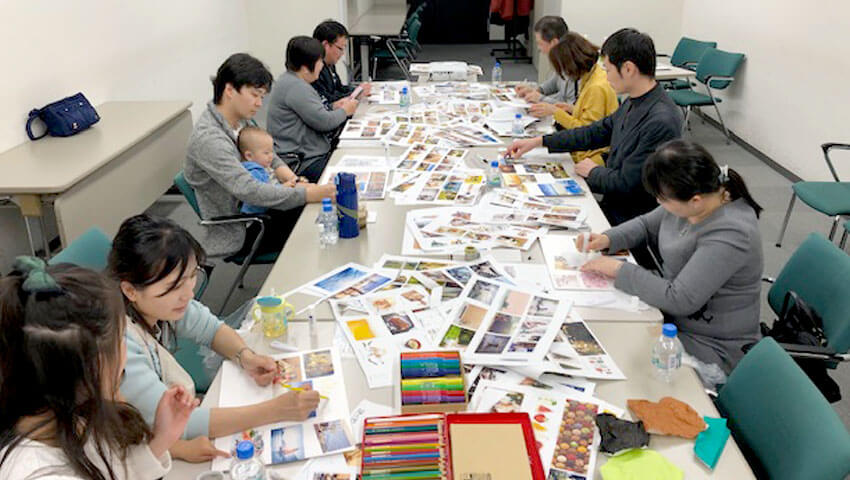


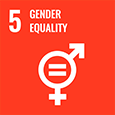




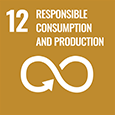

At the Life Design Laboratory of Panasonic Homes, we read various signs of change in the world from the perspective of lifestyle and give shape to ideas. We value each customer’s thoughts. Making use of our wisdom in the areas of living and advanced technologies, we would like to create a new lifestyle culture, and impress and satisfy our customers for generations to come. For that purpose, we believe it is important to keep predicting and envisioning the future, which seems to be constantly changing. As part of these efforts, we have operated a consumer monitoring organization comprising the owners of Panasonic Homes houses (named Kurashi Kizashi Lab, meaning a “laboratory for the study of signs of change in lifestyle”) since 2018, working with consumers to envision a new lifestyle in the future.
Photo: Workshop for Thinking about a Future Lifestyle (conducted in February 2020)

Through the activities of the Kurashi Kizashi Lab, the Life Design Laboratory collects feedback from the owners of Panasonic Homes houses by means of questionnaires, interviews, round-table talks, and workshops. We would like to listen to the owners directly, consider future lifestyles together with them, and propose better housing ideas based on their honest opinions.
Panasonic Homes is a group company of Prime Life Technologies Co., Ltd., which was established by Panasonic Holdings and Toyota Motor Corporation with the aim of creating future-oriented cities.